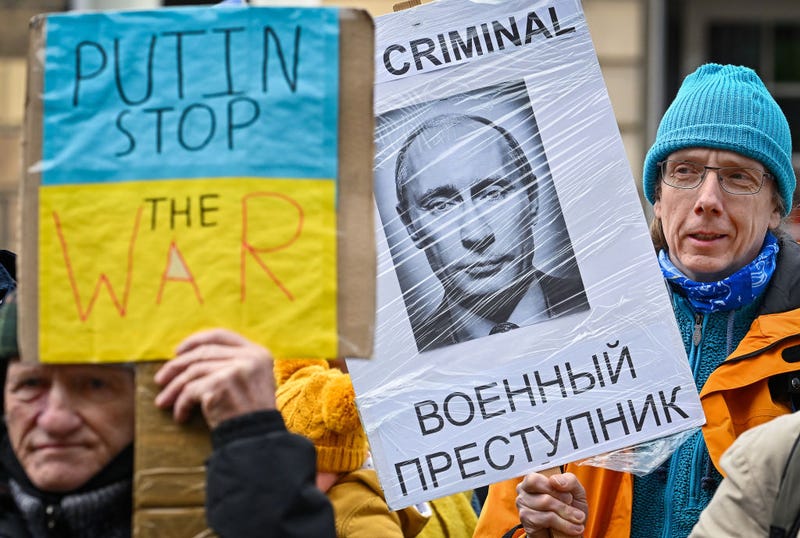
Professor Mikhail Blinnikov is a professor of geography, graduate coordinator at St. Cloud State University, and a former director of the Global Studies program at SCSU.
Blinnikov is also a native of Moscow, Russia who studied at Moscow State University before coming to the United States to attend school at Oregon in the mid-1990s.
What is it like, seeing the events unfold in Ukraine involving his home country? It’s been a challenge for Blinnikov who spoke to Vineeta Sawkar on the WCCO Morning News Thursday.
“It is extremely difficult because we all grew up in the Soviet Union with the memory of World War II, and then a huge ironic twist of history,” says Blinnikov. “We're now seeing sort of like Deja vu, but this time Russia is the aggressor.”
One of the main points Blinnikov is trying to stress is how this is the Russian Government and Putin who is responsible for the invasion of Ukraine.
“I want to stress this is the Kremlin,” explains Blinnikov. “It's not people of Russia necessarily, you know, doing this. It is the government that is saying, we were one country and Ukraine is just part of us. And it's been pretty much like this, discussed for many years now, especially since 2014 change of government in Kyiv. And of course the so called return of Crimea to Russia, the idea that we should be one country again.”
In February and March of 2014, Russia invaded and subsequently annexed the Crimean Peninsula from Ukraine. Many countries considered this a violation of international laws and it was widely condemned. There were sanctions put in place against Russia, while many refuse to recognize Crimea as part of Russia. Ultimately, it Russia formally incorporated Crimea.
That became the prelude the current invasion of Ukraine. Blinnikov says that even those that don’t agree with the war in Russia are afraid to speak out.
“Some of my colleagues and classmates are involved and it's very dangerous to protest (in Russia),” Blinnikov told WCCO. “It's the same with Belarus, the same way we need to remember there's another Slavic country right there. The polls are very unreliable. A lot of people are afraid to speak their mind when they’re actually asked who they support. There’s a lot of Russian people who totally disagree with the current situation. And of course, mind you, a lot of these people now are hit with sanctions, including for example, Visa and Mastercard don't work if you leave Russia. So a lot of these people are against.
Blinnikov adds that even those in Russia who do support what Putin has done are doing so because they’re not getting factual information from the government.
“We just heard from one of the Russian politicians who is a pro-Western politician, and he said approximately 30% of Russians do not support the engagement. And the remainder are essentially not able to have a true opinion because they only see pictures on the state TV and they choose not to use internet, many of them don't choose. And so it is effectively a very skewed perspective. And they were told, you know, there's bad people in Ukraine and we have to get rid of them. Basically have a pro-Russian government again. They agree with that but they don't realize that what's going on is a horrific scenario.”
As for an end to this current war, Blinnikov says that is going to be very difficult.
“This suffering that is ongoing, and it's getting worse by the minute. There is essentially no real easy way out of this crisis.”
There is also the threat of escalation which has the world on edge. Russia has put forces on nuclear alert which Blinnikov says is his biggest worry. He says Russia will be willing to do whatever they can to achieve their military goals.
“The worst possible thing that really worries me a lot is of course, escalation to a possible nuclear strike, which Putin's government had hinted at like a last resort. If they're losing the war, they're willing to use whatever they call all non-conventional methods at their disposal to basically achieve their goals. That would be absolutely horrific to even contemplate. If there is a ceasefire and there is some way for Ukraine to achieve at least rapid de-escalation at the moment to save lives, that will be preferred to continued escalation, but it's not happening right now.”
Blinnikov ended by saying he is hopeful the world can remember the Russian people are not to blame.
“There's a lot of us around the world who do not support the conflict from the Kremlin perspective and many of these people have future hope for prosperous and stable Russia when that time comes.”


